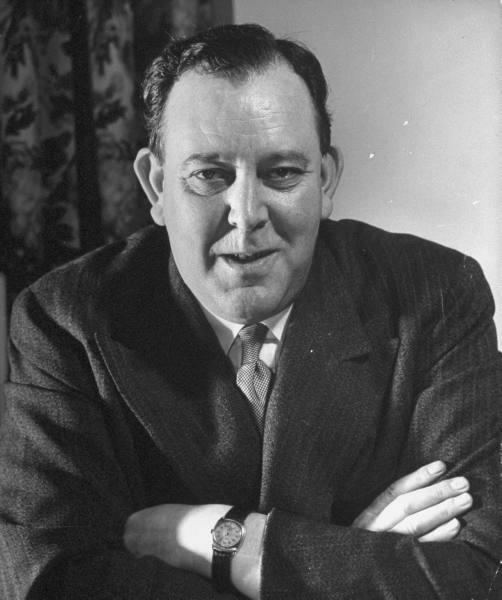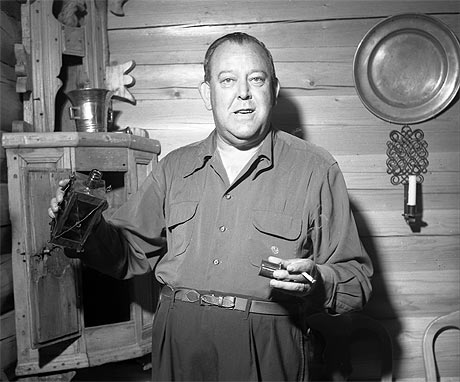<Back to Index>
- Explorer Roald Engelbregt Gravning Amundsen, 1872
- Painter Sir Joshua Reynolds, 1723
- 1st Secretary-General of the United Nations Trygve Halvdan Lie, 1896


Trygve Halvdan Lie (16 July 1896 – 30 December 1968) was a Norwegian politician. From 1946 to 1952 he was the first Secretary-General of the United Nations.
Lie was born in Kristiania on 16 July 1896. His father, carpenter Martin Lie, left the family to emigrate to the United States in 1902, never to be heard of again. His mother Hulda ran a boarding house in Grorud near Oslo. Lie joined the Labour Party in 1911 and was named as the party's national secretary soon after receiving his law degree from the University of Oslo in 1919. He married Hjørdis Jørgensen in 1921; the couple had three daughters, Sissel, Guri, and Mette.
Lie was editor-in-chief for Det 20 århundre ('The 20th Century') from 1919 to 1921. From 1922 to 1935 he was a legal consultant for the Workers' National Trade Union (named Norwegian Confederation of Trade Unions from 1957). He chaired the Norwegian Workers' Confederation of Sports from 1931 to 1935.
In local politics he served as a member of the executive committee of Aker municipality council from 1922 to 1931. He was elected to the Norwegian Parliament from Akershus in 1937. He was appointed Minister of Justice when a Labour Party government was formed by Johan Nygaardsvold in 1935. Lie was later appointed Minister of Trade (July to October 1939) and Minister of Supplies (October 1939 to 1941).
A socialist from an early age, Lie once met Vladimir Lenin while on a Labour Party visit to Moscow and gave permission for Leon Trotsky to settle in Norway after he was exiled from the Soviet Union.
In 1940, when Norway was invaded by Nazi Germany, Lie ordered all Norwegian ships to sail to Allied ports. In 1941 Lie was named as Foreign Minister of the Norwegian government-in-exile, and he remained in this position until 1946. Lie led the Norwegian delegation to the United Nations conference in San Francisco in 1946 and was a leader in drafting the provisions of the United Nations Security Council.
He was the leader of the Norwegian delegation to the United Nations
general assembly in 1946. On 1 February, 1946, he was elected as the
first Secretary General of the United Nations as a result of a compromise between the major powers, having only missed being elected President of the first General Assembly by a small margin. As Secretary General, Lie supported the foundations of Israel and Indonesia. He worked for the withdrawal of Soviet forces in Iran and a ceasefire to fighting in Kashmir. He attracted the ire of the Soviet Union when he helped gather support for the defence of South Korea after it was invaded in
1950 and later worked to end the Soviet boycott of UN meetings, though
his involvement had only little to do with the eventual return of the
Soviet Union to the UN. He was opposed to Spain's entry into the United Nations because of his opposition to the Franco government. He also sought to have the People's Republic of China recognized by the United Nations after the Nationalist government was exiled to Taiwan, arguing that the People's Republic was the only government which could fulfill the membership obligations in full. He has been criticized for his failures to facilitate negotiation in the Berlin Blockade,
as well as his failure to bring about a swifter end to the Korean War.
His critics argue that he was under the influence of a select few in
the UN Secretariat. He has also been criticized for his arrogance and stubbornness. In
1950, over objections from the Soviet Union, the UN General Assembly
voted by 46 votes to 5 to extend Lie's term of office. The vote was a
consequence of an impasse in the Security Council in which the US
refused to accept any candidate but Lie while the Soviet Union refused
to consider Lie due to his involvement in the Korean War. The Soviet Union subsequently refused to acknowledge Lie as Secretary General and, having been accused by Joseph McCarthy of
hiring "disloyal" Americans – an allegation which he attributed to
the pressing need for civil servants following the establishment of the
UN – Lie resigned on November 10, 1952. Lie remained active in Norwegian politics after his resignation from the UN. He was the County Governor of Oslo and Akershus, Chairman of the Board of Energy, Minister of Industry, and Minister of Trade and Shipping. He wrote a number of books. Though Lie never achieved widespread popularity, he earned a reputation as a pragmatic, determined politician. Lie died on 30 December, 1968, of a heart attack in Geilo, Norway. He was 72 years old.